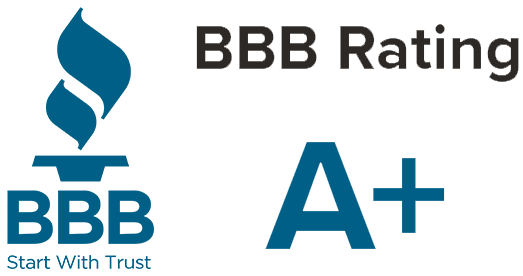Exploring the Roles of Bookkeeper, Controller, and CFO
By TED ROSE, ROSE FINANCIAL SOLUTIONS
Effective
financial management is critical for any business, and understanding the distinct roles of a bookkeeper, controller, and
Chief Financial Officer (CFO) is essential. All growing business need services that are performed by these roles, Finance as a Service (FaaS) integrates them into a streamlined, comprehensive solution that gives business leaders with an adequate level of support from each role.

Defining Key Financial Roles
Bookkeeper
A bookkeeper is responsible for the daily recording of financial transactions, ensuring accuracy in sales, receipts, payroll, purchases, and payments. Core responsibilities include paying bills, , processing payroll, preparing invoices, posting cash receipts, and reconciling bank accounts. Bookkeepers can play a crucial role in maintaining accurate and up-to-date financial records, which are essential for compliance and smooth business operations. Their work provides the foundation for all other financial activities, ensuring that businesses have reliable data for decision-making. As a company grows, this role is often performed by accounting staff.
Controller
The controller oversees the accounting department, focusing on the accuracy and integrity of financial and management reporting on an accrual basis. Responsibilities include managing accounting staff, ensuring proper accruals, preparing financial statements, and overseeing internal controls, budgets, audits, and tax support. Controllers provide meaningful financial information that is critical for regulatory compliance and strategic decision-making. By ensuring that financial reports are accrual based, accurate and timely, controllers help organizations stay compliant while supporting long-term business goals.
CFO (Chief Financial Officer)
The CFO is the senior financial executive responsible for managing a company’s overall financial actions, including strategic financial planning, risk management, investor relations, fundraising, forecasting, and cash management. The CFO also oversees financial and management reporting and ensures the long-term financial health of the organization by managing cash flow and the balance sheet. The CFO’s impact on a business is significant, shaping the financial strategy that drives growth and profitability while ensuring financial stability. By aligning financial strategies with the company’s goals, the CFO plays a critical role in guiding the organization toward sustained success.
The Evolution to Finance as a Service (FaaS)
Defining Finance as a Service (FaaS)
Finance as a Service (FaaS) is a comprehensive financial solution that integrates the roles of bookkeeper, controller, and CFO into a single, outsourced solution. FaaS provides these positions with the necessary technological support, allowing them to focus on finance, accounting, tax, and compliance activities. By leveraging technology and expert financial professionals, FaaS offers end-to-end financial management—from transaction recording to financial and management reporting, and strategic financial planning. This approach ensures that all financial functions are aligned with the business’s overall strategy, resulting in better business outcomes.FaaS enables organizations to modernize their back-office functions rapidly, supporting them through complex change management processes. This modernization is crucial for enhancing the stability and scalability of financial operations, allowing businesses to focus on their core activities.
Key Benefits of Finance as a Service (FaaS)
Scalability and Flexibility
FaaS can be tailored to the unique needs of any business, scaling services as the business grows. Whether a company is small or expanding rapidly, FaaS provides a company will the support it needs in all three areas, bookkeeping, controllership, and CFO support, based on its needs at a given time. These needs can adjust to meet evolving financial requirements.
Cost-Effectiveness
Hiring full-time, in-house financial professionals for each role—bookkeeper, controller, and CFO—can be costly. Especially in the early stages, a company most likely does not require a full-time Controller and CFO. Additionally, as a company grows, it can get access to accounting staff support in incremental units instead of having to hire a full-time employee to handle incremental growth. FaaS offers a cost-effective alternative by providing access to a team of seasoned experts without the overhead costs associated with full-time employees.
Access to Expertise
FaaS gives small to medium-sized businesses access to the same level of expertise typically available only to larger companies. This access ensures that all financial functions are handled by professionals who bring a wealth of knowledge and experience to the table. This expertise can include functions like banking, financing, cash management, payroll and related taxes, sales and related taxes, use tax compliance, and expertise related financial technologies.
Technology Integration
Accounting and financial software, AI, automation and data analytics tools, system integrations, data governance, and security are central to FaaS, enabling timely financial insights and automation. Data management and integration allows businesses to gain timely access to more and better information to make informed data-driven decisions.
Improved Decision-Making
With comprehensive, accurate and integrated financial data, an organization can perform more meaningful financial analysis. FaaS supports better financial decision-making by ensuring that business leaders have proper business and financial context provided by a senior financial expert or CFO. This improved decision-making as a result of financial clarity and proper context supports business growth and enhances overall financial health.
Comparing Traditional Roles with FaaS
Traditional Model vs. FaaS
In the traditional model, filling the roles of bookkeeper, controller, and CFO with an adequate level of expertise is not financially feasible over the long-term. Controllers don’t enjoy doing bookkeeping and don’t have the financial expertise of a CFO. Most small to mid-sized companies don’t have the resources to hire the necessary expertise internally. FaaS, on the other hand, integrates these roles into a unified service offering that cost effectively provides companies with the expertise needed to scale throughout their lifecycle. Bringing together the expertise of all three roles, Bookkeeper, Controller and CFO, FaaS offers businesses a powerful solution for managing and improving their financial performance.
Understanding the roles of bookkeeper, controller, and CFO is crucial for effective financial operations. Each role plays a unique part in maintaining the financial health of an organization, from daily transaction recording to strategic financial planning and guidance. However, the traditional model can be fragmented and inadequate. Finance as a Service (FaaS) offers a next-level financial service that combines the expertise of all three roles into a comprehensive, streamlined solution. This integration provides businesses with the tools they need to manage their finances effectively and improve their long-term growth financial performance.
Enhanced Compliance and Audit Readiness
Regulatory compliance is a significant concern for growing businesses. FaaS helps maintain compliance with ever-changing regulations and prepares organizations for financial audits. This proactive approach to compliance mitigates risks and protects the organization's reputation, ensuring that it can continue to grow without unnecessary regulatory, legal or financial setbacks.


Ted Rose
In 1994 Ted Rose founded Rose Financial Solutions (ROSE), the Premier U.S. Based Finance and Accounting Outsourcing Firm. In 2010, the Blackbook of Outsourcing named ROSE the #1 FAO firm in the world based on client satisfaction. As the president and CEO of ROSE, he provides executives with financial clarity. Ted has also acted as the CFO for a number of growth companies and assisted with various rounds of financing and M&A transactions.
Share this article:
Visit Us On:




